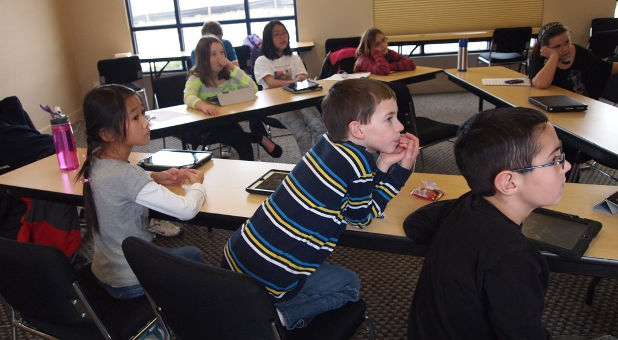As Easter Approaches, Report Says Academic Standards Expect Students to Learn About Jesus
While 2 billion Christians around the world prepare to celebrate Easter, millions of public school children in America won’t be learning about the religious aspects of this holiday.
However, contrary to what many educators think, a new report released this week documents that state academic standards not only allow but in some cases expect public schools to teach about Jesus, the Bible and Christianity.
Gateways to Better Education has published its online report “The Bible in State Academic Standards.” The 230-page report highlights state-by-state academic standards indicating ample opportunity for educators to teach about the Bible, Christian beliefs and Christians who were influential in history.
“There is a common misconception among many educators that teaching about the Bible and Christianity is not allowed in public school classrooms because of concerns over the establishment of religion,” says Eric Buehrer, president of Gateways to Better Education. “The fact is public school students are expected to learn these things.”
For example, California sixth-graders are expected to “note the origins of Christianity in the Jewish Messianic prophecies, the life and teachings of Jesus of Nazareth as described in the New Testament, and the contribution of St. Paul the Apostle to the definition and spread of Christian beliefs (e.g., belief in the Trinity, resurrection, salvation).”
The report also includes the preambles of state constitutions that reference God because, as Buehrer explains, most states have an expectation that students will learn about their constitutions. It also includes state laws regarding freedom of religious expression.
Gateways is providing a free download of the report’s 12-page introduction summarizing the document’s findings. It gives examples of specific academic standards referencing the Bible, Jesus, the Ten Commandments, how Christianity has impacted social change, Christians in history, the religious aspects of holidays and America’s Judeo-Christian heritage.















































